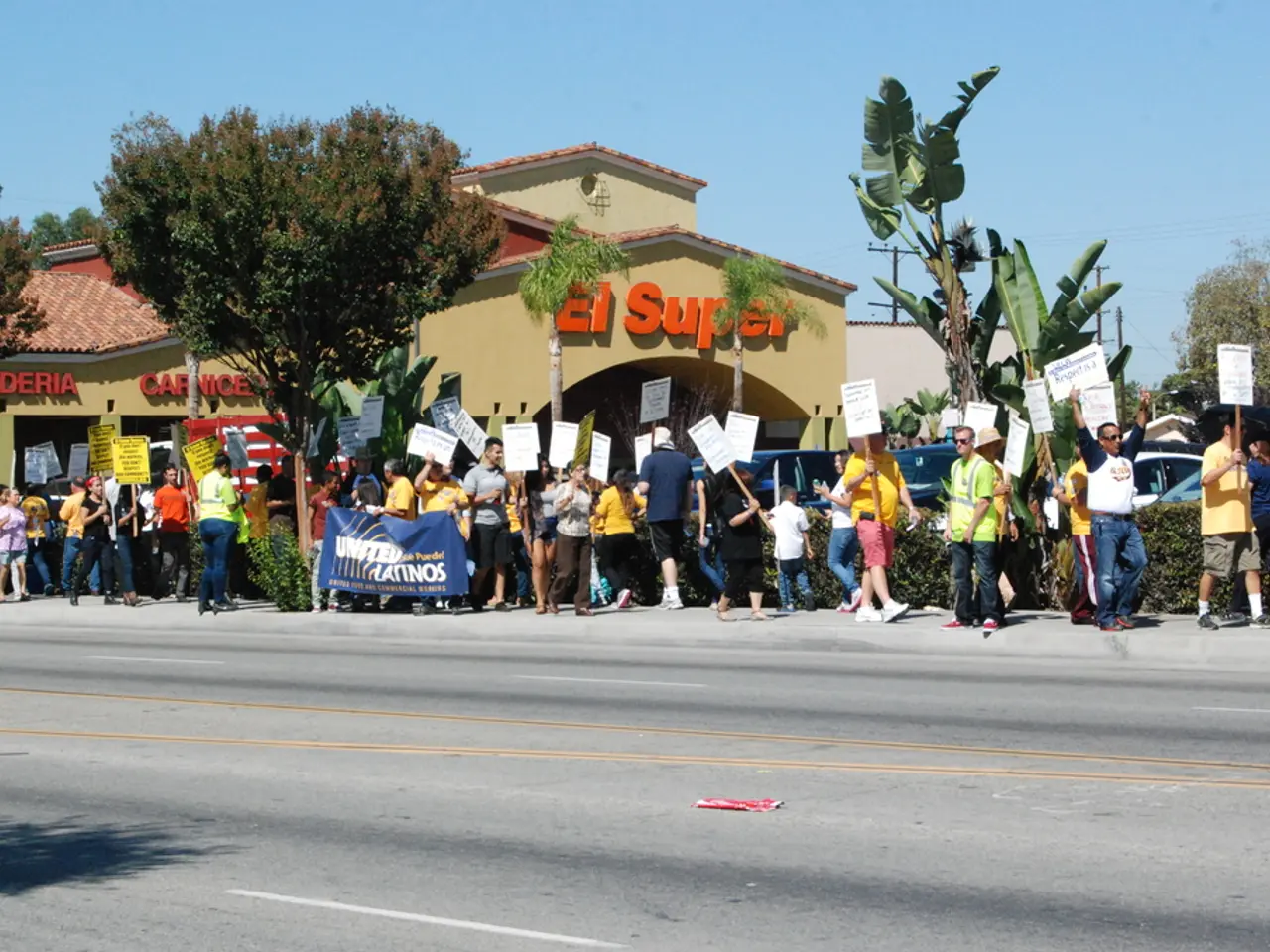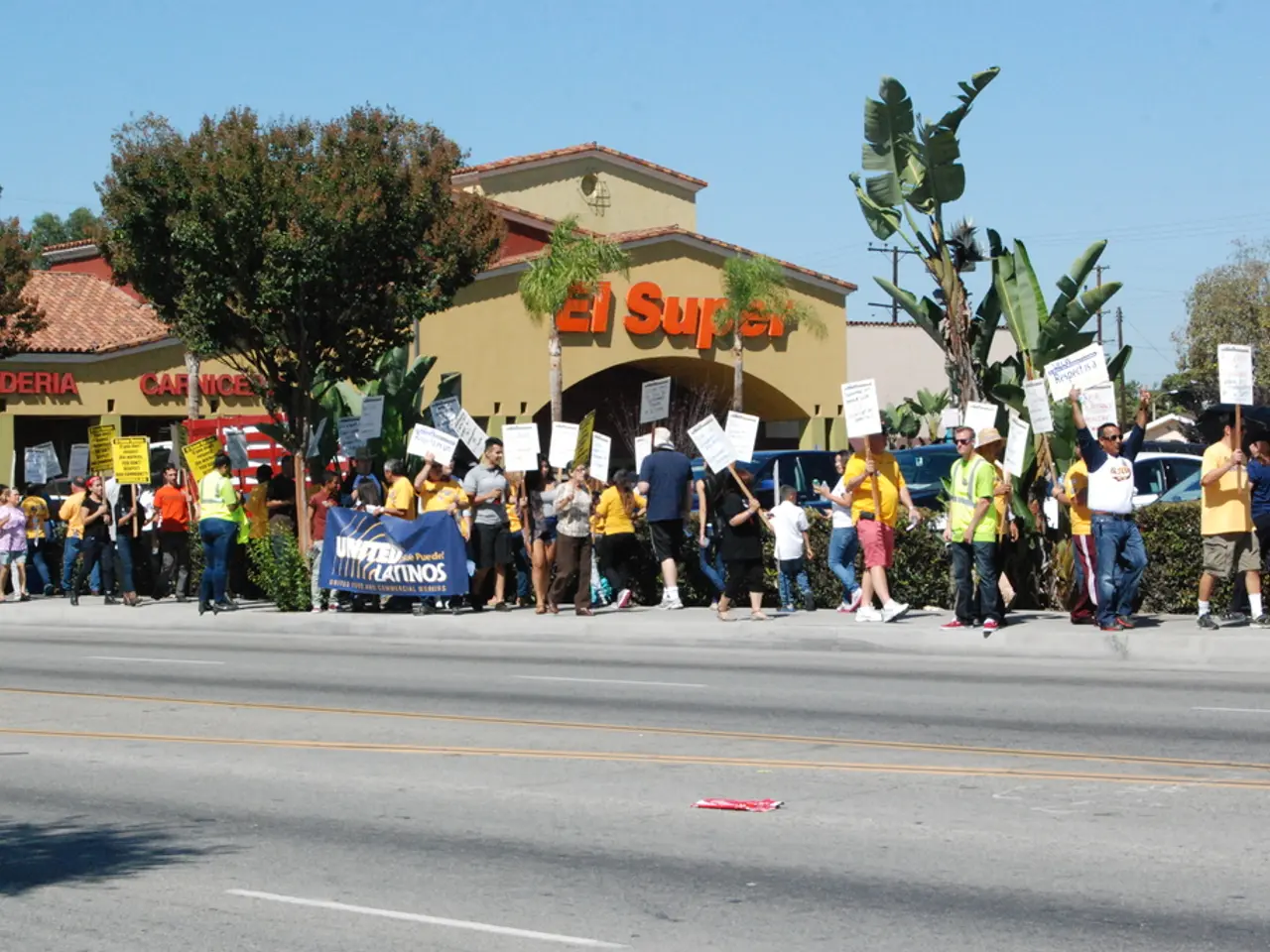The enacted abortion legislation poses no reason for alarm, according to its proponents.
Title: Late-Term Home Abortions: Taking a Second Look
By: Ann Furedi, June 24, 2025
Category: Politics, Feminism
In the ongoing hot-button issue of abortion, the recent vote by MPs to remove the criminal threat for women opting for home terminations after 24 weeks has struck a nerve among various factions of society.
As expected, the anti-abortion groups reignited the flames, spreading misinformation and doomsday scenarios. But, surprisingly, even the feminist front appears to have lost sight of reason amidst this relatively minor change.
The proposed change, embodied in MP Tonia Antoniazzi's amendment to the Crime and Policing Bill, isn't "decriminalization" in its entirety. Abortion remains a crime in England and Wales under the 19th-century Offences Against the Person Act 1861—unless the procedure is carried out under specific conditions:
- Two medical professionals sign off.
- The procedure takes place in a hospital or licensed clinic, or abortion pills are prescribed by a doctor for at-home use.
- The pregnancy shouldn't exceed 24 weeks.
In 2022 (the last year for updated figures), roughly a quarter of a million women in England and Wales opted for abortions under such conditions, with approximately 90% carried out before 10 weeks and one percent at or beyond 20 weeks[1].
The only women this change could affect are those who, under extenuating circumstances, terminated their pregnancies outside the aforementioned criteria for abortion pills. Given the infinitesimally small number of cases, how would this change alter the status quo?
In actuality, between 2019 and 2023, only five women were charged with self-administering abortion medications or using DIY procedures[1], highlighting the rising question: Why did the government feel the need to change the law when only a handful of women face possible prosecution over a period of four years?
Many critics worry about the deterrent effect of such laws. However, if the primary purpose of legislation is indeed to deter, we must question: are women really deterred by the law from seeking unsafe abortions? Couldn't they be just as, if not more, deterred by the harrowing consequences of such unsafe procedures?
In reality, those bad actors who flout laws care little about deterrents; they prioritize selfish desperation. These exceptional cases do not define the entire population of women, many of whom require safe, legal abortions provided with due care, consideration, and compassion. As ardent advocates, it is our moral responsibility to support these women and protect their rights, rather than casting judgment or stoking fear.
Further Reading
- The impact of criminalizing self-management of abortion on maternal health outcomes: A Review Protocol ( accessed on June 30, 2025)
- Safe Access: Women's Rights to Health Services in the Caribbean (accessed on June 30, 2025)
About the Author
Ann Furedi is a renowned advocate for women's rights, with significant experience in the field of reproductive health and rights. She has dedicated her career to championing access to safe and legal abortion services, as well as advocating for the rights of women worldwide.
- It appears that the debate surrounding late-term home abortions has extended beyond the realm of politics and general-news, seeping into the culture and even causing divisions within the feminist movement, as some have questioned the reasoning behind the proposed change.
- As Ann Furedi, a prominent figure in the reproductive health and rights movement, has emphasized, the proposed change regarding late-term home abortions does not equate to full decriminalization, but rather refocuses the conversation onto providing safe and legal options for women in need, while maintaining the existing legal framework under the Offences Against the Person Act 1861.







